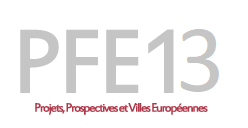Understanding the Role of Information Blogs in Modern Digital Strategies
Information blogs have become essential tools for businesses aiming to establish authority in their niche. Unlike generic websites, these platforms prioritize delivering actionable insights through structured digital content. By integrating SEO strategies early in the planning phase, bloggers can ensure their material reaches target audiences efficiently. Whether promoting products or sharing expertise, content marketing thrives on consistent updates from reliable information blogs.
Key Features That Define High-Quality Information Blogs
A superior information blog combines credibility with accessibility. It relies on well-researched digital content, often sourced from reputable online resources. Readers expect clarity, so avoiding jargon and maintaining a conversational tone is critical. Additionally, high-quality blogs emphasize readability through proper formatting and intuitive navigation. SEO strategies embedded into headlines and meta descriptions further enhance visibility, making these blogs indispensable for modern marketers.
How to Identify Reliable Sources Within Information Blogs
Cross-verifying claims against trusted online resources is crucial when evaluating information blogs. Look for citations, data references, and author credentials to gauge reliability. Blogs that regularly update their archives with fresh digital content demonstrate commitment to accuracy. Tools like plagiarism checkers and backlink analyzers can also help assess the integrity of a blog’s content marketing approach.
Trends Shaping the Evolution of Information Blogs Today
- Interactive elements like infographics and video tutorials are now standard in top information blogs.
- Artificial intelligence is being used to personalize content delivery based on user behavior.
- Collaborations between information blogs and industry experts are increasing, enriching digital content quality.
Best Practices for Engaging With Information Blog Content
Engagement starts with active participation. Commenting on posts, sharing insights on social media, and subscribing to newsletters help build relationships. To maximize impact, align your engagement with the blog’s core themes—whether it’s technology, health, or finance. Remember, content marketing success hinges on consistency and relevance in interactions.
Common Challenges Faced by Bloggers in the Information Sector
Balancing depth with brevity is a frequent challenge. Information blogs must deliver comprehensive digital content without overwhelming readers. Staying updated with evolving SEO strategies is another hurdle, as search engines constantly refine their algorithms. Monetization also poses risks, requiring careful integration of ads or affiliate links without compromising user experience.
Tools and Technologies Enhancing Information Blog Management
Platforms like WordPress and Ghost streamline content creation, while analytics tools track performance metrics. SEO plugins such as Yoast help optimize headlines and metadata. Automation tools for scheduling posts and managing comments reduce administrative burdens. These technologies enable bloggers to focus on crafting valuable digital content that resonates with audiences.
The Impact of SEO on Visibility of Information Blogs
SEO strategies are the backbone of an information blog’s reach. Optimized titles, meta descriptions, and alt text for images improve search engine rankings. Internal linking and mobile responsiveness further boost discoverability. Blogs that neglect SEO risk being overshadowed by competitors who leverage these techniques effectively. Prioritizing both user intent and technical optimization ensures long-term visibility.
Case Studies Highlighting Success in Information Blogging
One notable example is a tech blog that increased traffic by 300% after implementing targeted SEO strategies. Another case involves a health-focused information blog that partnered with influencers, expanding its digital content reach. These stories underscore the value of combining quality content with strategic marketing, proving that even niche information blogs can achieve global recognition.
Future Outlook for Information Blogs and Content Creation
As AI and machine learning advance, information blogs will likely adopt more dynamic content formats. Personalized recommendations and real-time data integration may become standard. However, human curation of digital content will remain vital to maintain trust. The future promises greater interactivity, but the core principles of SEO strategies and ethical publishing will stay central.
Strategies to Monetize an Information Blog Effectively
Monetization options include affiliate marketing, sponsored posts, and premium memberships. However, maintaining editorial independence is key to preserving audience trust. Diversifying income streams—such as offering online courses or selling related products—can reduce reliance on a single revenue source. Always align monetization efforts with the blog’s mission to avoid alienating readers.
Measuring the Success of Your Information Blog
Track metrics like page views, bounce rate, and time on site to evaluate performance. Google Analytics and social media insights provide valuable data. A high conversion rate indicates effective content marketing, while low engagement may signal the need to refine SEO strategies. Regularly reviewing these KPIs ensures continuous improvement in digital content quality and audience satisfaction.
Building a Community Around Your Information Blog
Fostering a community requires consistent interaction. Host Q&A sessions, create forums, or launch email newsletters to keep readers engaged. Encouraging user-generated content, such as reviews or guest posts, adds depth to the blog. A loyal community not only amplifies the blog’s reach but also provides feedback to refine digital content and SEO strategies over time.
Ethical Considerations in Publishing Information Blog Content
Transparency in sourcing and avoiding misleading claims are non-negotiable. Plagiarism and biased reporting damage credibility. Ethical bloggers disclose affiliations and correct errors promptly. Adhering to these standards ensures that the information blog remains a trusted source of digital content, reinforcing its role in effective content marketing. Visit https://luckytiger2.com/ for additional guidance on ethical practices.

COMMENTAIRES